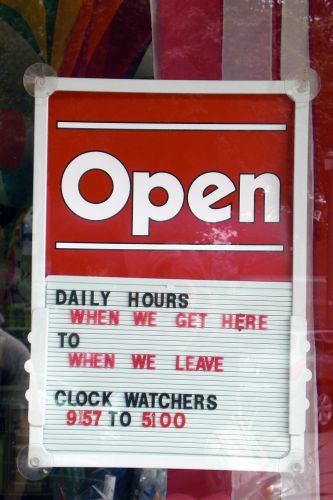I have mentioned this before, but one of the first questions you will get when you tell people you are taking a gap year to travel is, “What about your job?“. Your career is important and you don’t need to throw it out the window to travel. Change how you think about your trip and consider it a year to strengthen yourself. Yes, if you go overseas and drink beer 24/7 and tour the nightlife in every city you will probably not come back with much growth, but if you do it right – cultural experiences will challenge you to come back to your 9-5 job a stronger employee. Here are some of the few characteristics that have pushed me to be a stronger person in not only my work life but my personal life.
Communication You learn very quickly to use non-verbal communication to overcome communication and language barriers around the world. In most countries it becomes a game of charades, but with patience and understanding you almost always come to an agreement on whatever the matter may be. Just because you and another person don’t share the same language, doesn’t mean you can’t communicate.
Cultural Awareness It is eye-opening to realize that not everyone lives just like you do. You will see plenty of situations where you may not agree or understand why people do something a certain way, but you need to respect the culture you are visiting and make an honest effort to understand it.
Risk Taking Leaving behind a stable job and salary in hopes of broadening your horizon is not for the weak of heart. But big things happen to those who are willing to take big risks. Taking a year off from everything you are comfortable with and throwing yourself into experiences where you don’t speak the same language is uncomfortable, but with that risk comes an understanding and humility that may deeply change your worldview.
Problem Solving While traveling (especially if you get off the beaten path) you will almost always run into a situation where your hostel is no longer there, your chosen transportation is in the midst of a labor strike or your wallet may get stolen and you are left sans passport. The answer might not be as simple as it would in your home country, but being creative and solving the problem will help you be quicker on your feet for the next situation. Now you will have plenty of answers for those “Tell me about a time when you…” questions.
Negotiation Skills In the US at least, most prices are set and people are afraid that negotiating will make them seem rude. In many other countries, negotiating is something you do every day. You learn to show enough interest in what you want to buy, but not too much. You offer low and negotiate with the seller aiming to get the best price possible. Don’t be fooled by one seller, walk around and check out the other prices and plan your attack once you find what you finally want to purchase. This is a practiced skill and traveling through most of the world you will get plenty of experience.
Adaptability Learning how to adapt to unanticipated situations and improvise due to travel mishaps and unexpected events is imperative. Rain can cause your outdoor plans to change, while a train strike will prevent you from getting to your destination. You learn to be flexible and prepare for contingencies.
Budgeting and Planning When you start to plan your trip you anticipate how much you want to spend per day – your budget is rough but it should outlay the different countries and varying expenses in each place. In Europe your cost per day will increase greatly vs. SE Asia. You have to think not only of daily expenses but of your transportation and the big events or tours you might want to take. Once you have your budget and you are traveling, tracking and adjusting your spending will help you stay on track. This transfers back into your personal finances at home and when you may need to track a budget for your job in the future.

Leave a Reply